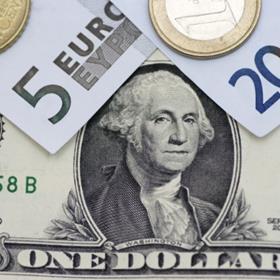
It was a good week for commodity-related currencies thanks to the US government shutdown, according to Moneycorp.
A spokesperson for the firm, which is the UK's leading independent foreign currency exchange broker, said: 'For investors, it was a simple question: Would the United States be driven into default by a bunch of self-indulgent politicians in the House of Representatives, or would the agitators back off at the last moment and do the right thing for their country?
'By the end of last week, most investors were comfortable with the idea that Congress would, even if only reluctantly, agree to increase the debt ceiling in time to allow the Treasury to borrow the money it will need to repay bill-and-bond-holders later this month. Armed with that confidence, they decided it was 'game on' again for global growth and that they no longer needed the security of safe-haven currencies.'
The net result was strength for the 'risky' commodity-related South African rand, closely followed by the antipodean dollars, and weakness for the 'safe' Japanese yen.
The US dollar and the euro never strayed far apart and were almost unchanged against one another on the week. Sterling would have kept pace with them had it not been for some unfortunate manufacturing and industrial production data.
UK manufacturing and industrial output both registered monthly and annual declines for August. The numbers coincided with a larger than expected trade deficit for the same month.



